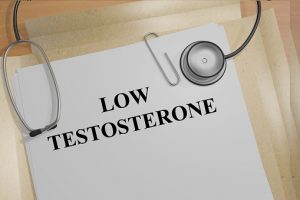 Varicoceles is a condition that occurs when the blood vessels in the sack that holds the testicles becomes enlarged. This may either cause minor or sharp pain and may not even show any initial symptoms. This condition is likely to affect male fertility in terms of the sperm production and quality as well as lowering testosterone levels. This can be somewhat compared to varicose veins, which is a common condition affecting blood vessels in the legs.
Varicoceles is a condition that occurs when the blood vessels in the sack that holds the testicles becomes enlarged. This may either cause minor or sharp pain and may not even show any initial symptoms. This condition is likely to affect male fertility in terms of the sperm production and quality as well as lowering testosterone levels. This can be somewhat compared to varicose veins, which is a common condition affecting blood vessels in the legs.
New study links varicoceles with metabolic diseases
Recent research at the Stanford University School of Medicine points out a possible link between these enlarged veins on the scrotum with vascular and metabolic diseases. Michael Eisenberg, assistant professor of urology, accessed several medical insurance records to analyze if this condition puts men at other health risks apart from infertility. The study was published in Andrology and authored by Nancy Wang along with Eisenberg. Varicoceles has been associated with low testosterone levels and low testosterone has been associated with metabolic syndrome.
Link between low testosterone levels, varicoceles, and metabolic disorders
Advertisement
Metabolic disorders are a result of the malfunctioning of the liver or pancreas, genetic anomalies that cause certain deficiencies, or abnormal chemical reactions in the metabolic processes. Metabolic disorders increase the risk of cardiovascular diseases and even death. Low testosterone levels have been linked with an altered lipid profile, obesity, and insulin resistance in men; however, they have not been linked with mortality. However, there is evidence that links the condition to metabolic diseases and even type II diabetes. Men with abdominal obesity could have low testosterone levels. So, both these levels are inversely proportional. These fat deposits have a high activity of aromatase, which leads to the conversion of testosterone into estrogen, the female hormone.
Testosterone is known to inhibit fatty acid synthesis by increasing the number of beta-adrenergic receptors. It is also known to inhibit the lipoprotein lipase enzyme, which breaks down free fatty acids that can be absorbed in the blood. So, in a way, we can say that it indirectly helps storage of fats by inhibiting enzymes and processes that lead to their breakdown and absorption. We all know stored fat is responsible for obesity and altered metabolism.
According to some research, lowered testosterone levels have been linked with an increased risk of diabetes and insulin resistance. Excess fat deposits are a causative factor for insulin resistance. But more research is required to understand this whole mechanism.
Normally, varicoceles is not considered harmful by most doctors and these patients are prescribed medications to reduce pain and treat infertility. But Eisenberg thinks that these dilated veins in the scrotum may be associated with metabolic disease risks, as the condition leads to low testosterone levels. These findings could help establish the link between varicoceles and vascular and metabolic disorders and change the line of treatment altogether. This would also reduce the risk of metabolic and cardiovascular diseases in men to some extent. However, more research is required to connect the dots between varicoceles, low testosterone levels, insulin resistance, and metabolic syndrome.
Also read: 19 foods that lower testosterone levels
